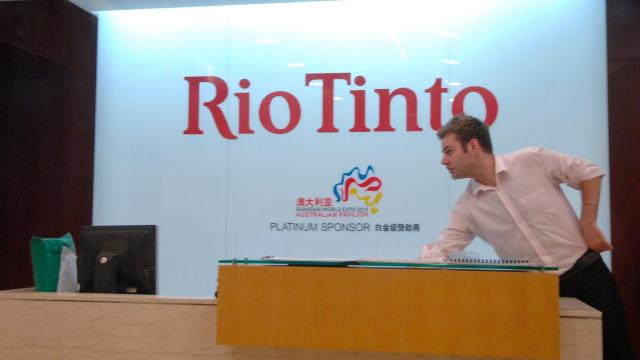More than 20 women employees of Rio Tinto, one of the world’s largest mining companies, reported a rape or attempted sexual assault while on the job, while a third of all female employees and 7% of male employees experienced sexual harassment in the workplace, the company said this week.
The mining giant released a comprehensive report on Tuesday, which it had commissioned itself, providing a look at some of the problems in its workplace culture. The report, titled “Everyday Respect,” found that bullying is “systemic” across the company, while sexism occurs at “unacceptable rates” and racism is “common.” Sounds like a great place to work!
Rio Tinto is a huge company — it operates in 35 countries, and has more than 47,000 employees — so the fact that these attitudes are so widespread is cause for alarm. The report comes after the Australian government launched an inquiry into the treatment of women at mining sites, and finds that more than 40% of female workers at sites known as “fly-in, fly-out” — sites with remote access — have experienced sexual harassment. The report didn’t delve into gender identity, but found that LGBTQI+ employees, even those who were not open about their identity at work, also experienced “significantly elevated rates of bullying, sexual harassment, and racism.”
Racism, the report found, is also part of the culture at Rio Tinto. “There was a strong view that, in some parts of Rio Tinto, racism is ‘normalised’, with one employee stating, ‘I have copped racism in every single corner of this company,’” the report reads.
The findings on racism in the report aren’t particularly surprising — the company doesn’t exactly have a stellar public track record on caring about the rights of non-white people, especially Aboriginal people. (Almost 40% of male Rio Tinto employees identifying as Aboriginal or Torres Strait Islander reported that they experienced workplace racism.) In 2020, the company blew up two mining sites that were occupied by Indigenous groups some 46,000 years ago — even though priceless artifacts were discovered at the site in 2014, and despite pleas from Aboriginal groups and archaeologists to allow further exploration of the site. Last year, an Aboriginal group accused the company of literally throwing important artifacts from a separate mining site in Australia into the trash in the early 1990s, then keeping the destruction of those artifacts secret from the public for decades.
Amid the global furor over Black Lives Matter in June 2020, Rio Tinto issued what looked like an apology letter for its actions, but an executive later clarified that they were not actually sorry for blowing up the mine, only sorry for making people upset. That’s nontoxic solidarity for you! (Rio Tinto’s CEO and two other top executives later resigned over the issue.)
Here in the U.S., the company isn’t much better. For years, Rio Tinto, in tandem with mining company BHP, has been fighting for the right to mine a stretch of forest in Arizona that is sacred to the local Apache and other Native groups. The Trump administration gave the project the green light, which the Biden administration then rescinded.
“We are deeply disturbed by these findings, and we sincerely apologise to every team member, past or present, who has suffered because of these behaviours,” Rio Tinto said in a public response to the report. The company might want to look broader to start issuing apologies for a lot of its past actions.
